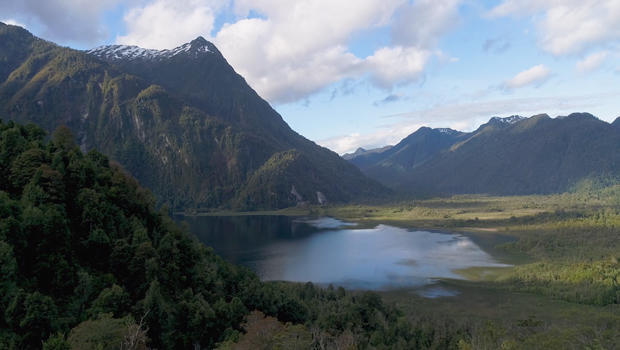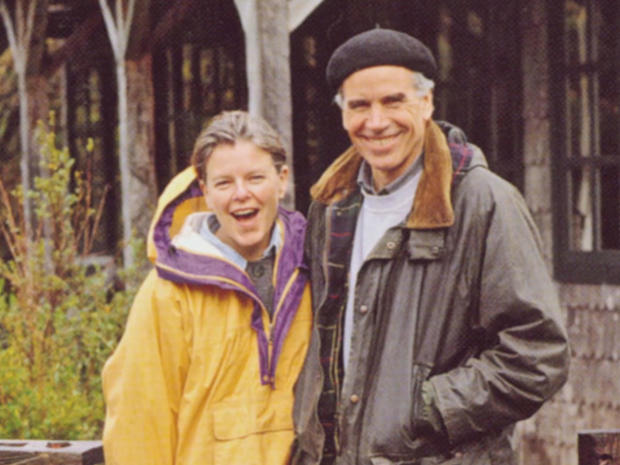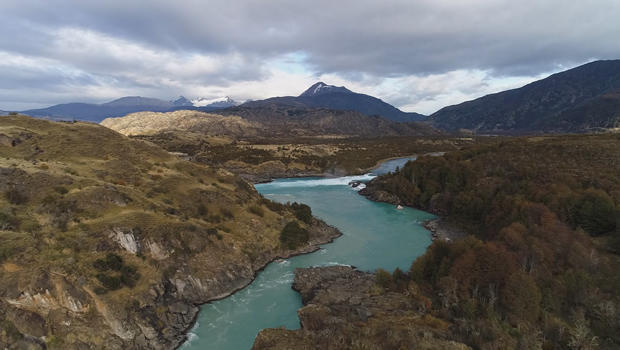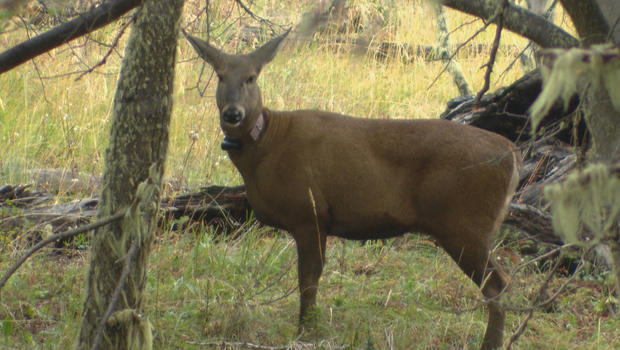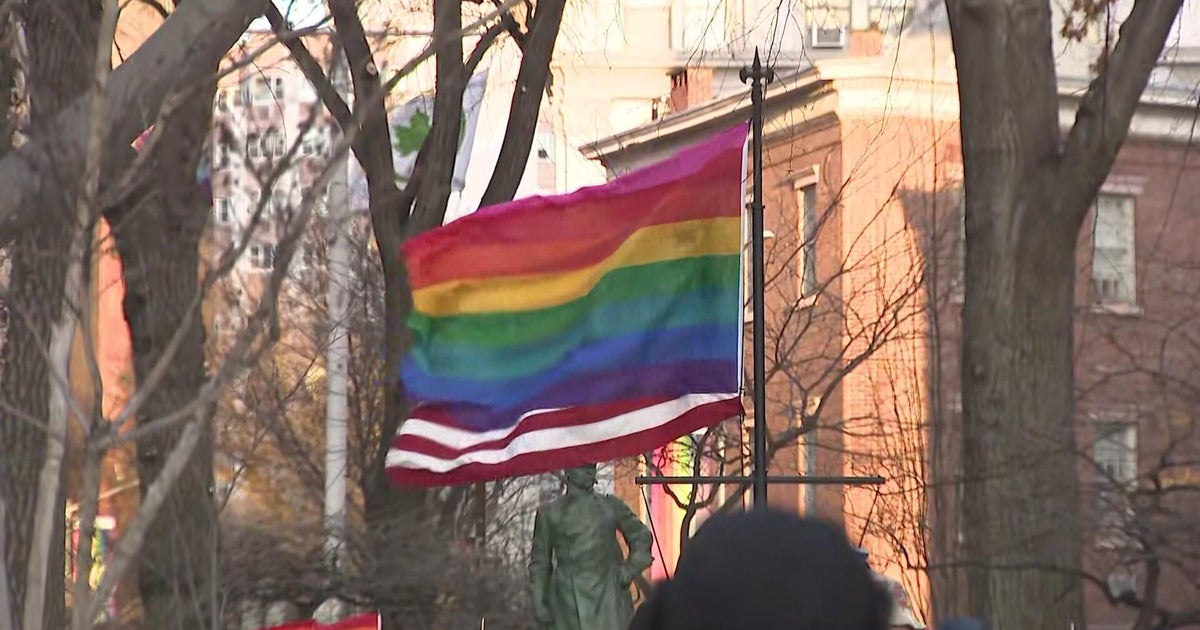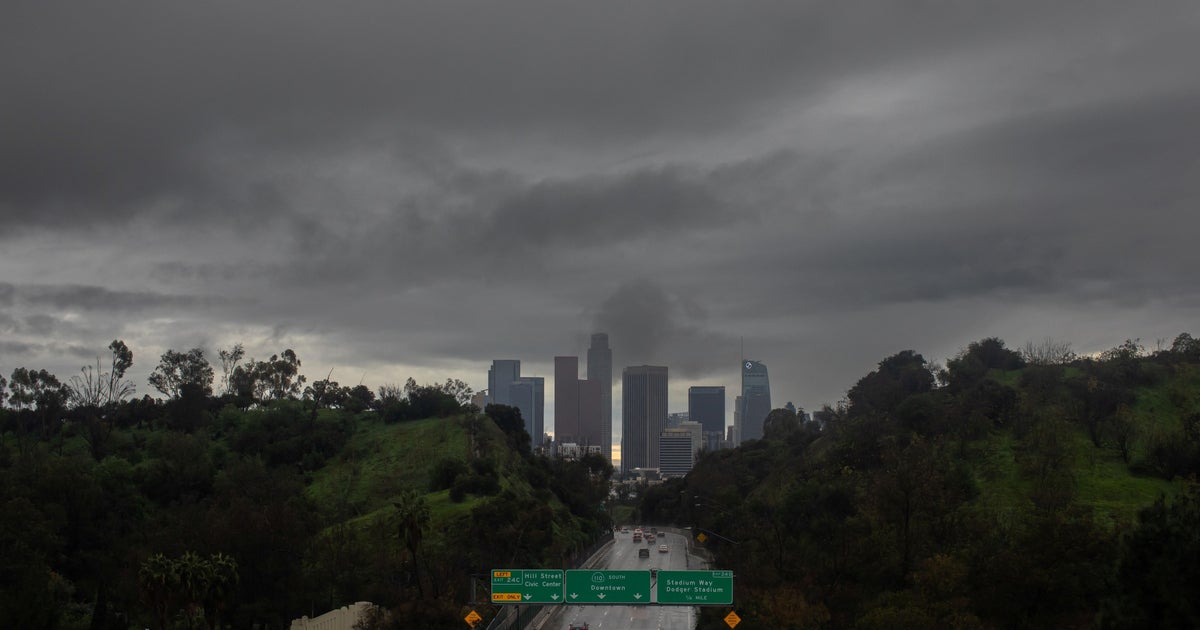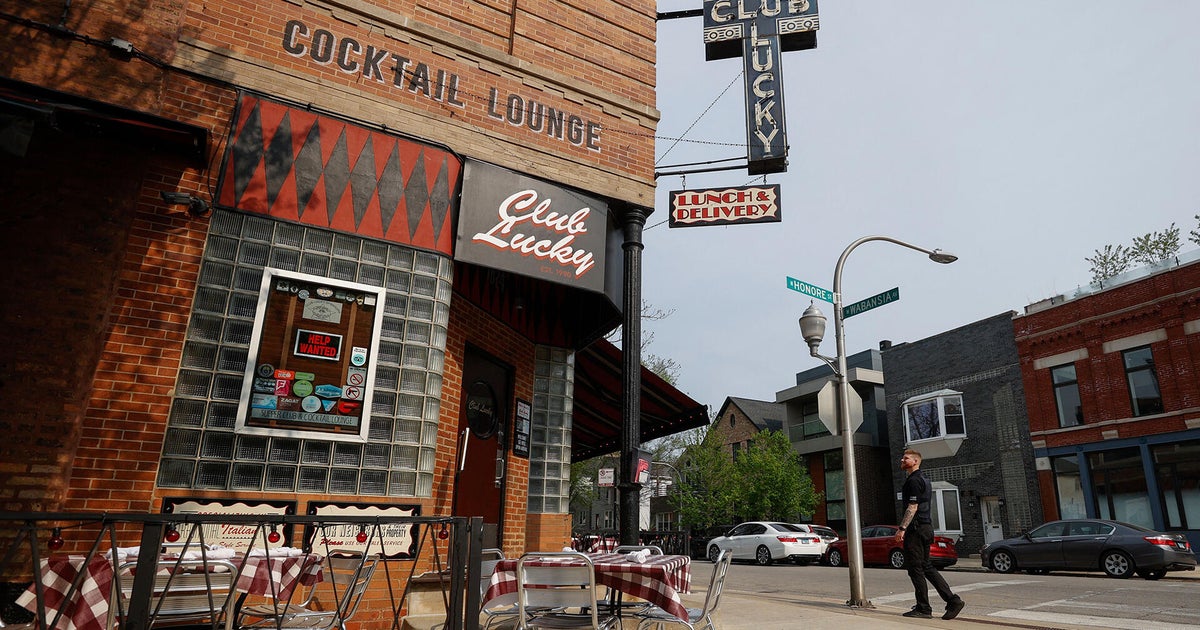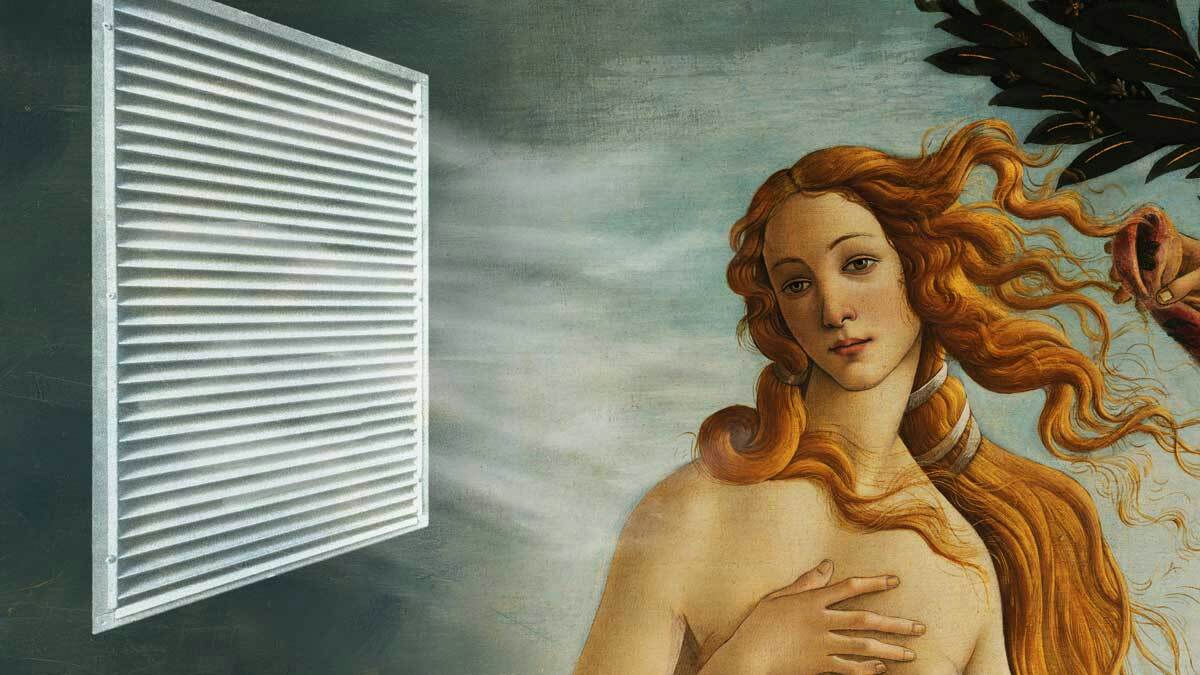Creating Patagonia National Park
Patagonia National Park is massive. Located in the southern tip of Chile, its more than half-a-million acres are home to mountains and valleys, glaciers and grasslands, winding rivers and wild guanacos.
"I know this place so well, and I'm still finding little nooks and crannies that I had no idea existed," said Kristine Tompkins. She knows this place so well because until very recently, she owned it. Earlier this year, her non-profit, Tompkins Conservation, formally handed over this park to the Chilean government.
It joins a network of other Chilean and Argentinian national parks all supported by Tompkins, part of the largest private land donation in history.
Tompkins is not from Patagonia – not the South American region, anyway. She was the former CEO of Patagonia, the clothing company. Then Kristine McDevitt, she was Patagonia's first employee. Her boss, founder Yvon Chaunard, was friends with fellow mountain climber and entrepreneur Doug Tompkins, who co-founded The North Face and Esprit.
Correspondent Conor Knighton said, "I've read some stories about 'em. Seemed like a wild group of guys, just sort of always headed off on adventures and scaling dangerous peaks."
"I would say that's an understatement," Tompkins laughed. "I would say 'wild' is a good word!"
Tompkins had known Doug for decades before they finally went on their first date. Both had been in previous marriages, but when they met up in Chile in the early 1990s, things felt different. "Almost immediately, everything changed," she said.
"It was an instant spark?"
"Yes."
By then, Doug had retired and was living in South America full time. It wasn't long before Kristine decided to join him. "On a Friday I retired, and Sunday, two days later, I packed up two small bags and flew to Chile," she said.
But the couple's life's work was just beginning. It started with a memorable camping trip together in these mountains. They decided to use their combined fortune to purchase hundreds of thousands of acres of Chilean ranches with the goal of one day turning that land into national parks.
Knighton asked, "From the moment you bought it, were you thinking park thoughts?"
"Oh, absolutely!"
They bought their first 175,000 acres in 2004. Rumors swirled about what the rich Americans might be up to. Some locals thought they were secretly working for the CIA; others thought they were snatching up land for a nuclear waste dump. "The great one was that we were going to take all the cattle out and replace them with American bison," Tompkins laughed.
What the Tompkinses were planning was even more outlandish; they intended to give everything away.
"If the goal was just to protect the land, it seems like you could've purchased it, put a fence around it and then just kept it wild. Why make them parks?" asked Knighton.
"If you buy a Picasso and you hang it in your living room, your friends can see it, your family can see it. But that's really it," she replied. "If you buy the same Picasso and you put it in a museum in New York City, millions of people will see that Picasso. Well, national parks are the same thing. We think it's important that the masterpieces of a country belong to everyone."
The Tompkinses combined their purchases with existing government land. All told, around 14 million acres were converted into 11 new public parks.
But as the couple was nearing the home stretch, tragedy struck. In December of 2015, Doug Tompkins went kayaking in a lake near Patagonia Park with his friends. A sudden storm capsized his boat, plunging him into the freezing cold water for hours until he was finally brought to shore. Kristine got the call on her satellite phone.
"For Doug to be the one in trouble, then something was really wrong," said Kristine. "So, my reaction was to go out under the Husky, the little plane you see out there, which is what Doug flew all the time, crawl underneath it and not come out. It was a long day."
The days that followed were the most difficult of Tompkins' life. "It wasn't just losing my husband; it was a full amputation. We did everything together. We flew, we worked together, we lived together. And so, I feel really fortunate that all this had to be done."
Knighton asked, "Did you feel an extra energy to continue on that work even harder?"
"Oh, yeah. Oh, absolutely. It's what saved me, probably."
While the parks have now been handed over, Tompkins is still hard at work, focusing on "rewilding" the land, paying naturalists to help bring back animals that were pushed out during a century of over-grazing.
Knighton said, "It sounds like protecting the land was just the first step?"
"Exactly. It's the beginning of the work," laughed wildlife manager Cristian Saucedo, who is determined to rehabilitate the park's population of South Andean deer, called huemul.
The endangered huemul is on Chile's coat of arms, but few Chileans have ever had the chance to see one in the wild. Today, former cattle ranchers like Daniel Velasquez have taken on new jobs as huemul trackers. While keeping this land free of development was once seen as a job killer, the benefits of having a world-class national park are beginning to be realized.
"In Chile, 20, 30 years ago, nobody was visiting the national parks," Velasquez said. "Today you have Chilean families visiting the national parks."
Tompkins has funded a network of museums, trails and campsites to accommodate the new visitors. The hope is that tourists from all over the world will come to fall in love with the same landscape she and her late husband fell in love with all those years ago.
Knighton asked, "That campsite that you used to go to, how's it feel to know that people will now plan a vacation here and that will be a campsite that they'll go to?"
"I hope so – maybe they'll find my Swiss army knife," Tompkins replied. "I had bought one, huge, you know, one of these things, and then lost it on the first camping trip, so it's somewhere!"
For more info:
Story produced by Chris Spinder.
